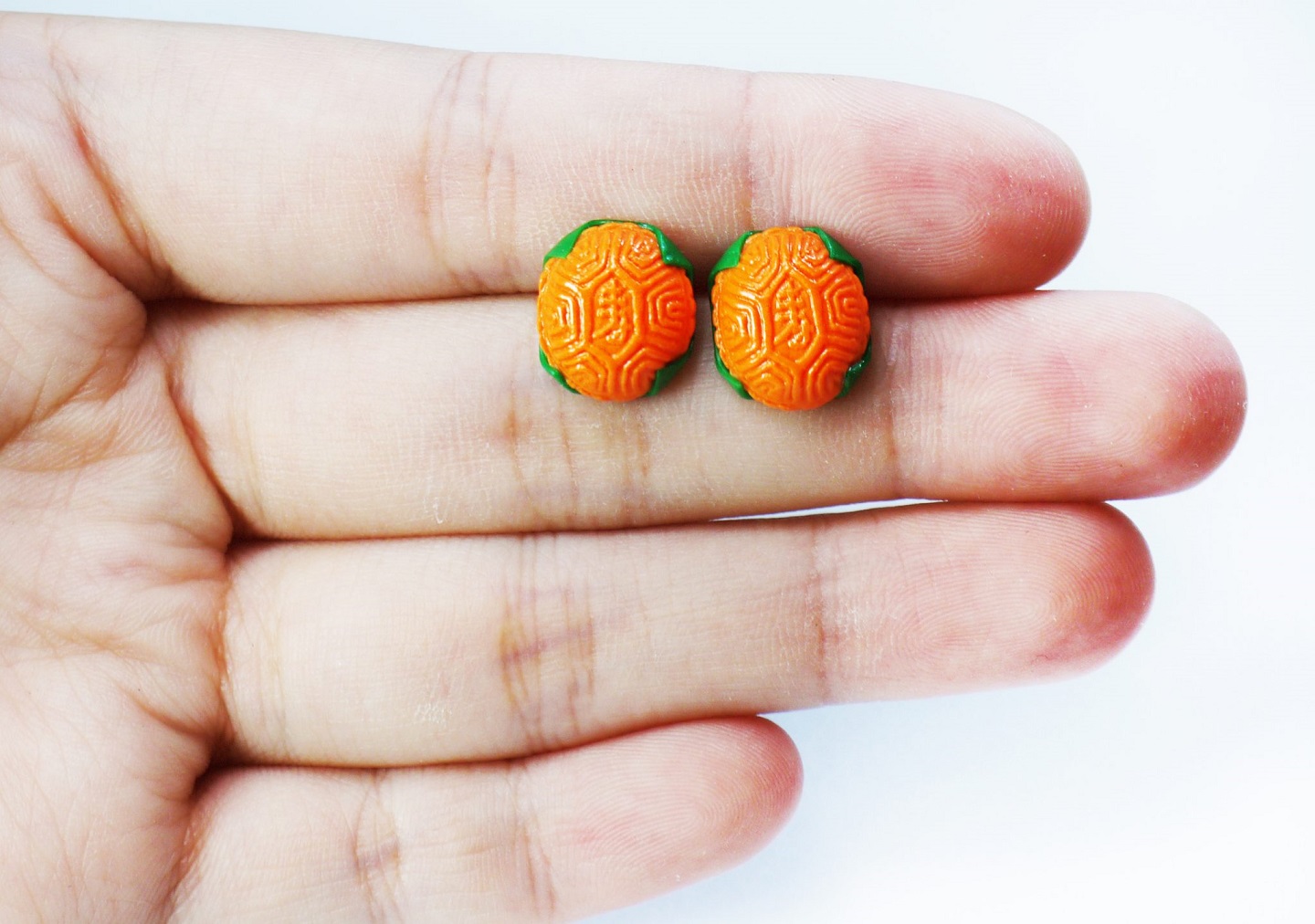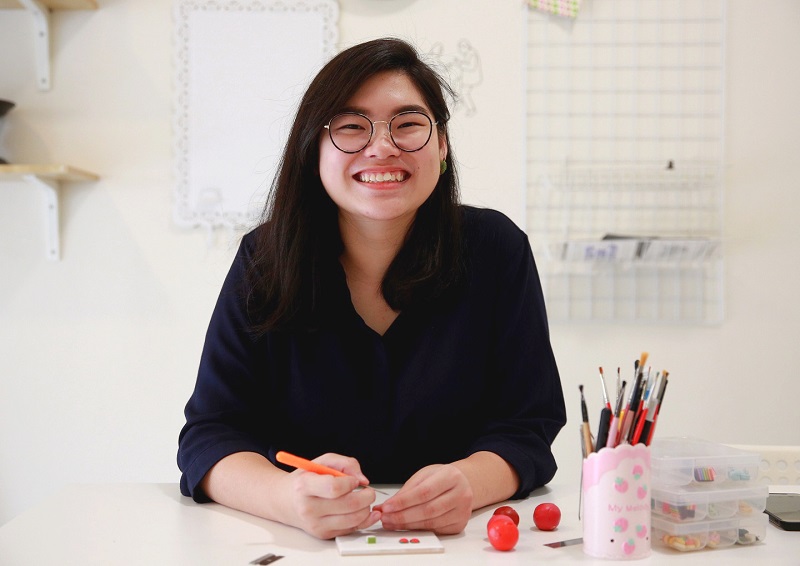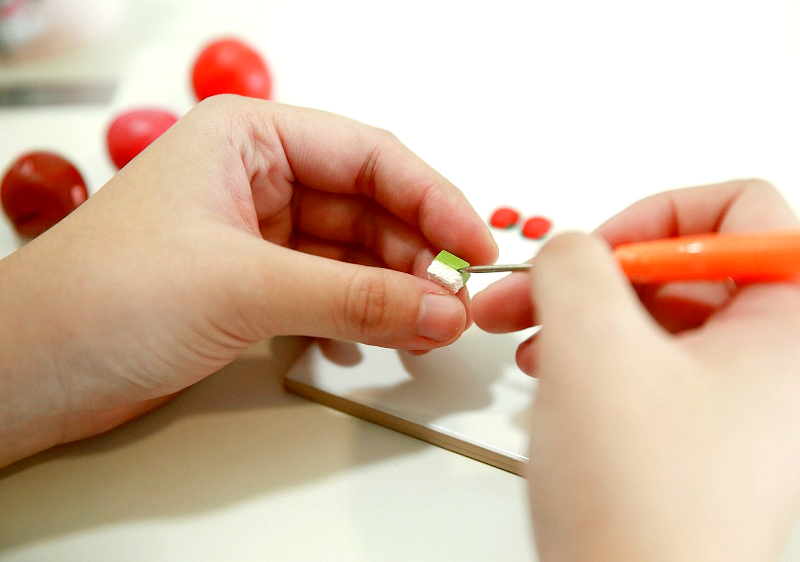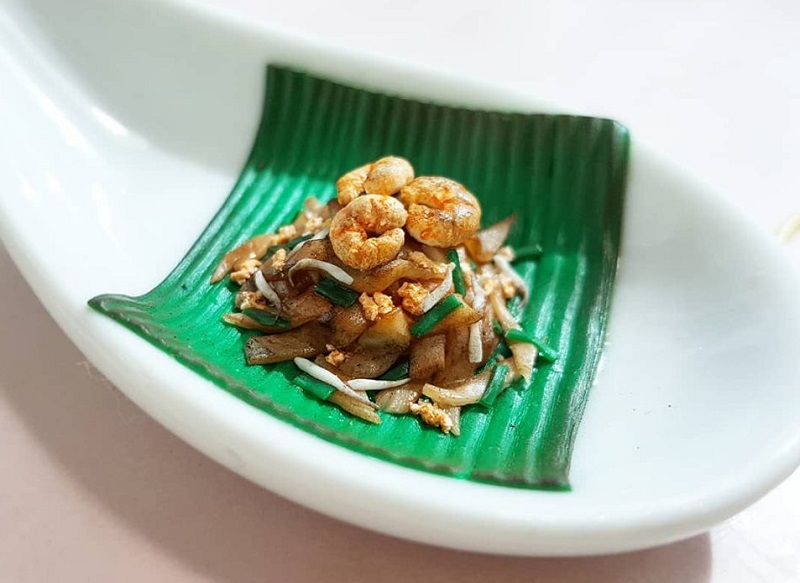
Ling’s first miniature angku kuih took her eight hours to make (Photo: TinyPinc)
Many arts and crafts junkies use their creative skills to de-stress and escape the struggles of the world. For individuals like Ling Hooi Yin, dedication to their craft has blossomed into a business of their own. While in her first year of university, Ling was looking for a new artistic pursuit beyond her design-related degree. She found YouTube videos of people making miniature food out of clay and decided to try it for herself. “I struggled to find materials. I had to visit all these older art shops in Petaling Street. They were letting go of some old blocks of clay so I thought, ‘Let me try this out’,” she says.
The range of YouTube content we are familiar with today is a little different from what Ling encountered in 2010. “Back then, you could not really get 100% of the techniques on YouTube. It was mostly children sharing what they had made or some very simple tutorials. But if you are more into techniques, what to do and what not to do, then you have to read blogs. On blogs, everyone documented their progress. I would get tips from the internet, and for the answers I could not find, I had to experiment and figure them out myself,” she explains.
20190911_peo_ling_hooi_yin_5_sam.jpg

Having worked with materials such as air-dry clay, Ling was exhilarated to find polymer clay, the material that all her pieces are made of. “It’s so versatile, so flexible and you can do so many things with it. When I found polymer clay, I thought it was cool — I can leave it out for a few days and it doesn’t dry out. And if after eight hours, I decide to scrap it and re-do — which happens a lot — I can just reuse the material. I don’t have to keep throwing things away,” she says.
Ling decided to sell her creations after a few friends began requesting for them. While still enrolled at college, she attended bazaars and realised that her products were in demand. Thus, TinyPinc Miniatures was born; selling handmade accessories such as earrings, necklaces, cufflinks and magnets that resemble miniaturised food items.
20190911_peo_ling_hooi_yin_8_sam.jpg

Ling’s first Malaysia-inspired miniature was Angku Kuih, which took her eight hours to make because of all the fine lines. It is a time-consuming process, resulting in an impressive level of detail that makes the miniatures look realistic. Ling even imports high-grade polymer clay so her miniatures are of a good quality. “It’s a very long process. Let’s say that I am making something new: I have to make the first prototype, then I make moulds to reproduce it easily. I have to perfect my prototype, which usually takes two to three times my usual sculpting time. After that, I have to shade, give it round edges, or make it look baked. It can take five to 30 minutes depending on what I am making. It’s like applying make-up, you have to build the colours and layers. After I am done with the whole thing, I will bake it in the oven for 30 minutes. If I am making earrings, I spend 15 to 20 minutes applying the ear studs, and then do the glossing and packaging.”
Ling even watches actual cooking shows to see how certain foods are made, to help her process. “I like watching YouTube videos about how food is made. For example, when you watch videos of people making a croissant, it really helps to see how the pastry is rolled. Through videos you can get a clearer picture due to all angles, so you realise it should be darker here or crispier there,” she says. Some of TinyPinc’s most popular miniatures include char kuey teow, durian, nasi lemak, siew yoke and iced gem biscuits.
61427844_2751292611579287_1814522304151945216_n.jpg

Ling became a multimedia designer after she finished studying. “I wanted to go full-time into TinyPinc even before I graduated, but I felt that it was too early and I wasn’t sure if I could feed myself. I felt it was better to begin working first and understand what’s going on outside before I started my own business.” So she still ran TinyPinc, using her free time to expand her business. After three years of working for an agency, she took on TinyPinc as her main endeavour.
“When I was in the agencies, I was still running TinyPinc and joining art markets, and it was crazy. When I started doing it full-time, I had no income for the first few months because I was trying to figure things out; things like how I should run the business properly to get that fixed amount of income every month. It was quite difficult because I needed to build my client base and come up with new things,” she adds.
One of TinyPinc’s main struggles has been pricing. Ling admits that her Malaysian clients do not fully appreciate the amount of work that goes into each of her pieces. People often think her miniatures are machine-made, rather than the time-consuming and lovingly handcrafted works that they are. To combat this ignorance, she made videos to show people her process and she also runs workshops. “A lot of my workshop participants follow my work more because they understand that it takes a lot of time. My workshops are usually four to five hours long just to make a plate of kuey teow.”
It has been around five years since Ling made TinyPinc her main work and she now has a studio in Kelana Jaya. TinyPinc is also on Patreon, a subscription platform where people can subscribe to her business every month.
This article first appeared on Sept 23, 2019 in The Edge Malaysia.


